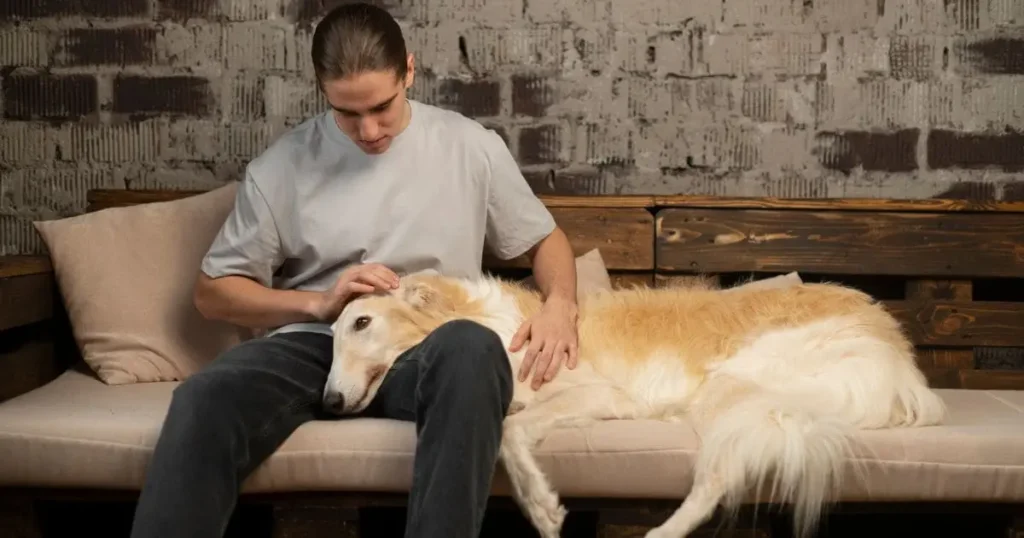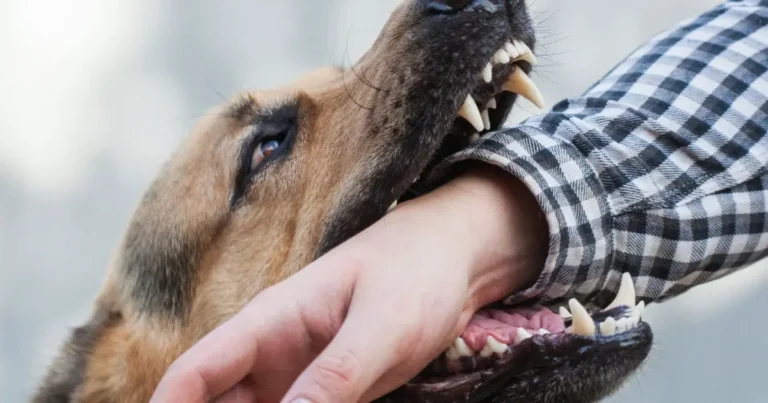
Why Does My Frenchie Keep Throwing Up
Look, I get it—watching your why does my Frenchie keep throwing up is scary, messy, and honestly pretty heartbreaking. One minute they’re their usual goofy self, and the next, you’re cleaning up half-digested kibble off your carpet for the third time this week. If you’ve found yourself Googling “why does my Frenchie keep throwing up” at 2 AM, you’re definitely not alone.
French Bulldogs are amazing little companions, but let’s be real—they come with their quirks. And unfortunately, vomiting is one of those things that Frenchie owners deal with way more often than owners of other breeds. Maybe it happens right after meals, or perhaps it’s random and catches you completely off guard. Either way, it’s frustrating when you can’t figure out what’s going on with your pup.
The truth is, there’s rarely just one simple answer. Sometimes it’s something totally harmless, like your Frenchie inhaling their food like it’s a competitive sport. Other times, it could be pointing to something that needs a vet’s attention. Their smushed faces, sensitive stomachs, and tendency to eat literally anything they find on the ground all play a part in why throwing up seems to be their specialty.
In this guide, we’re going to break down the most common reasons your Frenchie might be vomiting, how to tell if it’s serious, and what you can actually do about it. Because you deserve answers, and your Frenchie deserves to feel better.
Also Read: How Old does a Dog have to be a Breed
Short Answer About Do Frenchies Throw Up More Than Other Breeds?
Yes, French Bulldogs tend to throw up more often than many other breeds. Their short snouts and sensitive digestive systems make them more prone to issues like swallowing air, food allergies, and stomach upset. However, why does my Frenchie keep throwing up frequent vomiting isn’t normal and should be checked by a vet to rule out any underlying health problems.
Do Frenchies Throw Up More Than Other Breeds?

French Bulldogs are adorable companions, but their unique anatomy makes them more susceptible to certain health challenges. As a brachycephalic breed, these flat-faced dogs with their characteristic short snout face specific eating challenges and swallowing difficulties that can lead to vomiting, gagging, and regurgitation.
Also Read: How to Choose the Best Whelping Box French Bulldogs
The Anatomical Factor
The canine anatomy of why does my Frenchie keep throwing up differs significantly from other breeds. Their compressed facial structure creates breathing issues and respiratory issues that directly impact their feeding behavior. This breed-specific issue means that eating too quickly or rapid eating can trigger immediate problems, including swallowing air (aerophagia), which leads to discomfort and vomiting.
Puppies vs. Adult Frenchies
Puppies are particularly vulnerable to these challenges. Their excitable nature combined with developing digestive systems means they’re more prone to gulping food and gulping water without pause. Puppy health requires special attention during feeding time, as their stomach sensitivity and immature esophageal problems can make digestive problems more frequent.
Adult Frenchies, on the other hand, typically show better control during meals. Through maturation and growth development, most dogs naturally improve their mealtime behavior and experience fewer incidents.
Also Read: How to Determine French Bulldog Litter Size
Proper Care and Health Management
Implementing proper care strategies is essential for health management. Veterinary care professionals recommend why does my Frenchie keep throwing up several preventive measures to address these breed-specific issues:
Feeding Techniques
- Use slow feeders to prevent rapid consumption
- Consider elevated bowls to improve posture and reduce air intake
- Implement strategic feeding techniques that encourage slower eating
- Monitor pet nutrition to ensure appropriate food consistency
Long-term Health Management
With appropriate preventive measures and attention to canine health, most French Bulldogs can live comfortably despite their anatomical challenges. Regular veterinary care ensures that any esophageal problems, respiratory issues, or digestive problems are caught early and managed effectively.
The good news is that understanding your Frenchie’s unique anatomy and adjusting their feeding behavior can significantly minimize vomiting episodes. Most owners find that combining proper care with patience during the growth development phase leads to a happier, healthier pet.
Also Read: How Long are French Bulldogs Pregnant
Vomiting or Regurgitation?

When your Frenchie starts throwing up, it’s natural to worry. However, understanding the medical distinction between vomiting and regurgitation is crucial for proper veterinary diagnosis and treatment. These two physiological responses may appear similar but indicate very different health concerns within the gastrointestinal tract.
What is Regurgitation?
Regurgitation is a passive regurgitation process where undigested food comes back up from the esophagus without any abdominal effort or abdominal contractions. This upper digestive system issue occurs shortly after eating and involves food passage that never reached the stomach.
Key Characteristics of Regurgitation:
- Tube-shaped material reflecting the esophageal shape
- No retching, heaving, or nausea involved
- Occurs within minutes of timing after eating
- Food consistency remains largely unchanged
- Often caused by eating too quickly or esophageal problems
- No stomach acid or bile present
- Represents swallowing issues rather than gastrointestinal issues
What is Vomiting?
Vomiting is an active vomiting process involving forceful expulsion of stomach contents that have entered the digestive stages. This body response requires visible abdominal contractions and represents a more complex digestive process gone wrong.
Key Characteristics of Vomiting:
- Contains partially digested or fully digested food
- Involves physical signs like drooling before the event
- Retching and heaving are common warning signs
- May include stomach acid and bile
- Clinical signs include visible abdominal effort
- Can be acute vomiting (occasional) or chronic vomiting (repeated)
- Often accompanied by other symptoms and accompanying symptoms
Diagnostic Differences and Health Implications
Why does my Frenchie keep throwing up understanding these diagnostic differences is essential for identifying serious issues within your Frenchie’s gastrointestinal tract. The medical distinction between these two conditions helps veterinarians pinpoint whether the problem lies in the esophagus or stomach.
Also Read: How Many Puppies do French Bulldogs Have
Warning Signs Requiring Immediate Attention:
Frequent vomiting combined with accompanying symptoms such as:
- Lethargy or unusual tiredness
- Diarrhea or other digestive disturbances
- Changes in food consistency preferences
- Persistent nausea or discomfort
- These illness indicators suggest potential digestive disorders
When Regurgitation Becomes a Concern

While occasional passive regurgitation might result from eating too quickly, persistent episodes indicate esophageal problems that require veterinary diagnosis. Swallowing issues in the upper digestive system can worsen if left untreated, affecting food passage through the gastrointestinal tract.
When Vomiting Signals Serious Problems
Active vomiting that produces partially digested or fully digested material with bile or stomach acid requires immediate attention. Chronic vomiting represents why does my Frenchie keep throwing up a more severe physiological response to underlying gastrointestinal issues or digestive disorders.
Critical Clinical Signs:
The body response during vomiting includes distinct physical signs:
- Drooling before the episode
- Retching and heaving motions
- Visible abdominal contractions
- Nausea and discomfort
- Forceful expulsion of stomach contents
Understanding the Digestive Process
The digestive process in your Frenchie involves multiple digestive stages from food passage through the esophagus to the stomach and beyond. Timing after eating helps distinguish between issues at different points in the gastrointestinal tract.
Undigested food appearing shortly after eating in a tube-shaped form matching the esophageal shape indicates regurgitation. Meanwhile, digested food with altered food consistency containing stomach acid or bile indicates vomiting.
Taking Action: From Symptoms to Diagnosis
Also read: How to Determine Frenchie Stud Fee Effectively
Recognizing warning signs and clinical signs helps you determine when your Frenchie’s throwing up represents minor swallowing issues versus serious health concerns. Both acute vomiting and chronic vomiting serve as illness indicators requiring professional veterinary diagnosis.
Monitor for accompanying symptoms like lethargy or diarrhea, which transform isolated incidents into patterns suggesting digestive disorders or other gastrointestinal issues. Understanding whether your pet experiences passive regurgitation or active vomiting with abdominal effort, retching, heaving, and nausea provides crucial information for your veterinarian.
By recognizing these diagnostic differences and physical signs of each physiological response, you can better communicate your Frenchie’s symptoms and ensure proper treatment for esophageal problems or other serious issues affecting their upper digestive system and overall gastrointestinal tract health.
Common Causes of Vomiting in French Bulldogs
Frenchies are prone to throw up for various reasons, ranging from harmless causes to situations requiring immediate medical attention. Understanding the different vomiting reasons helps you determine when to worry and when it’s just a minor hiccup in your pup’s day.
Understanding Vomiting in French Bulldogs
The causes of vomiting in Frenchies are diverse, and recognizing vomiting triggers is essential for proper health monitoring. While some instances represent benign issues that resolve on their own, others signal serious conditions requiring veterinary care. The key is understanding normal vs abnormal patterns and knowing when to seek help.
Common Causes of Vomiting

Let’s explore the most common causes that lead Frenchies to experience vomiting reasons throughout their lives:
1. Eating Too Quickly
One of the most harmless causes and preventable causes of occasional vomiting. When your Frenchie gulps down food rapidly, it can trigger immediate digestive issues that result in throw up episodes. This trigger is easily managed with slow-feeder bowls.
2. Dietary Indiscretion
Frenchies eating inappropriate items creates vomiting triggers that range from benign issues to health problems. This underlying cause requires symptom assessment to determine severity and whether medical intervention is necessary.
3. Food Sensitivities and Allergies
Medical conditions like food allergies represent treatable causes that need proper diagnosis. These health issues manifest through recurring vomiting or intermittent vomiting, requiring veterinary consultation for health evaluation.
4. Stress and Anxiety
Emotional triggers create occasional vomiting episodes. While generally harmless causes, persistent vomiting from anxiety warrants professional help to address underlying causes.
5. Empty Stomach (Bilious Vomiting Syndrome)
This benign issue causes Frenchies to throw up yellow bile, typically in the morning. Though concerning, it’s among the more harmless causes and represents a treatable cause through adjusted feeding schedules.
Also Read: How Much are Fluffy French Bulldogs
When Harmless Becomes Serious
Understanding pattern recognition helps distinguish between harmless causes and serious conditions. Occasional vomiting differs significantly from persistent vomiting or recurring vomiting, which indicate deeper health problems requiring medical attention.
Warning Signs Requiring Immediate Veterinary Care
Certain warning signs transform occasional vomiting into unusual vomiting that demands immediate veterinary examination:
- Persistent vomiting lasting more than 24 hours
- Blood in vomit indicating serious conditions
- Intermittent vomiting with increasing frequency
- Lethargy accompanying throw up episodes
- Changes in severity or pattern recognition
These warning signs require professional diagnosis and clinical assessment to identify underlying causes and medical conditions.
Determining Frequency and Severity
Frequency and severity are critical factors in symptom assessment. Occasional vomiting once or twice monthly represents normal vs abnormal baseline for some Frenchies. However, recurring vomiting multiple times weekly signals health issues requiring veterinary consultation.
Tracking Patterns for Better Diagnosis
Effective health monitoring involves pattern recognition through maintaining a health checklist:
- Document frequency of episodes
- Note vomiting triggers and timing
- Record severity and contents
- Track warning signs and accompanying symptoms
- Monitor for intermittent vomiting vs persistent vomiting
This information aids veterinarian advice and enables accurate professional diagnosis during veterinary examination.
Preventable Causes vs. Medical Conditions
Distinguishing between preventable causes and actual medical conditions is crucial for pet health. Many vomiting reasons stem from controllable triggers rather than serious conditions:
Preventable Triggers:
- Rapid eating (use slow feeders)
- Dietary changes (gradual transitions)
- Access to garbage or toxic items
- Overexertion after meals
Medical Conditions Requiring Treatment:
- Gastrointestinal obstruction
- Inflammatory bowel disease
- Pancreatitis
- Kidney or liver disease
- Infectious diseases
These medical conditions represent serious conditions requiring immediate medical intervention and professional help.
The Importance of Veterinary Consultation
How Much is a Franchie, When Frenchies experience unusual vomiting or persistent vomiting, consult vet immediately. Veterinary consultation provides essential health evaluation through proper clinical assessment. Don’t delay seeking help when warning signs appear—early medical evaluation prevents health problems from escalating.
What to Expect During Veterinary Examination
Your veterinary care provider conducts thorough veterinary examination including:
- Complete symptom assessment and history
- Physical examination for underlying causes
- Diagnosis through laboratory tests if needed
- Professional diagnosis of medical conditions
- Treatment plan for treatable causes
This clinical assessment by expert guidance determines appropriate medical intervention.
When to Worry: Understanding Normal vs Abnormal
The normal vs abnormal distinction helps you when to worry about your Frenchie’s health issues:
Normal (Less Concerning):
- Occasional vomiting (1-2 times monthly)
- Clear triggers like eating grass
- Harmless causes with quick recovery
- No other warning signs
Abnormal (Seek Help Immediately):
- Persistent vomiting or recurring vomiting
- Unusual vomiting with blood or unusual color
- Increasing frequency or severity
- Multiple warning signs present
- Intermittent vomiting becoming more frequent
Seeking Professional Help
Never hesitate to seek help when your Frenchie’s vomiting reasons seem concerning. Professional help through veterinary consultation provides peace of mind and proper diagnosis. Veterinarian advice ensures treatable causes receive appropriate medical attention before becoming serious conditions.
Creating Your Health Monitoring Plan
Effective health monitoring involves maintaining a detailed health checklist:
- Track frequency of all throw up episodes
- Identify potential vomiting triggers
- Document severity and progression
- Note pattern recognition over time
- Record all warning signs
- Monitor for intermittent vomiting vs persistent vomiting
- Schedule veterinary examination when concerned
This systematic approach to symptom assessment enables better professional diagnosis and health evaluation.
Also Read: How To Determine Black French Bulldog Cost
Conclusion: Balancing Concern with Action
Understanding why Frenchies throw up involves recognizing the spectrum from harmless causes to serious conditions. While many vomiting reasons represent benign issues or preventable causes, persistent vomiting, unusual vomiting, or recurring vomiting demand medical attention.
Trust your instincts about when to worry. When warning signs appear or pattern recognition suggests underlying causes, don’t hesitate to consult vet for veterinary consultation. Professional help through veterinary care and expert guidance ensures your Frenchie’s pet health remains optimal.
Remember: this guide covers common causes and vomiting triggers, but individual health issues vary. Regular health monitoring, awareness of normal vs abnormal patterns, and prompt veterinary examination when needed ensure treatable causes receive proper medical intervention before developing into serious conditions requiring extensive medical evaluation and clinical assessment.
When to Be Concerned

While occasional vomiting and regurgitation are relatively common in Frenchies, certain symptoms demand that you act quickly and consult vet immediately. Recognizing critical signs and red flags can mean the difference between a manageable situation and a life-threatening condition.
The Most Critical Signs: Don’t Ignore These Indicators
The most important indicators of a serious issue requiring immediate veterinary attention are often subtle but significant. These critical signs include:
1. Lethargy and Excessive Sleepiness
Lethargy and excessive sleepiness are among the first warning symptoms of a serious problem. When your normally active Frenchie becomes unusually tired or unresponsive, this health decline signals a critical condition requiring immediate care.
2. Loss of Appetite
Loss of appetite combined with vomiting represents a red flag indicating acute symptoms of a severe underlying condition. This concerning symptom shouldn’t be dismissed as a minor issue.
3. Signs of Distress
When your Frenchie shows signs of pain, discomfort, whining, appears restless, or displays obvious distress, these are alarming signs requiring urgent care and immediate response.
Life-Threatening Symptoms Requiring Emergency Response
Certain emergency symptoms constitute a veterinary emergency demanding you don’t delay in contacting vet for professional care. These life-threatening signs require timely intervention and prompt action:
Blood in Vomit or Stools
Blood in vomit or blood in stools indicates potential internal bleeding or a severe underlying condition. This critical sign represents a medical emergency requiring emergency response and immediate veterinary attention.
Also Read: How to Determine Frenchie Dog Prices Effectively
Persistent and Frequent Vomiting
Persistent vomiting lasting over 24 hours or frequent vomiting episodes signal a serious problem beyond simple digestive upset. This pattern can rapidly lead to dehydration, a critical condition that compounds the original serious issue.
Dehydration itself becomes an emergency situation requiring urgent care and veterinary help. The combination of persistent vomiting and fluid loss creates a health crisis demanding immediate care.
Unproductive Retching: A Life-Threatening Emergency
Unproductive retching—when your Frenchie attempts to vomit but nothing comes up—is an alarming sign of bloat or gastric torsion. This life-threatening condition requires immediate response and represents one of the most serious emergency symptoms in dogs.
Bloat (gastric torsion) is a medical emergency where the stomach twists, cutting off blood supply. This critical condition demands acting quickly for emergency care as it can be fatal within hours without timely intervention.
Rapid Weight Loss and Weakness
Rapid weight loss combined with your Frenchie becoming visibly weaker or losing weight dramatically indicates a deteriorating condition. This health decline represents severe symptoms of an underlying condition requiring immediate veterinary attention and a vet visit.
Also Read: How to Estimate Long Haired French Bulldog Cost
Signs of Pain and Discomfort
Observable signs of pain through whining, unusual restless behavior, or visible discomfort are concerning symptoms that shouldn’t be ignored. When combined with vomiting, these indicators suggest a serious issue requiring veterinary help.
Your Frenchie displaying distress through pacing, inability to settle, or abnormal posturing represents urgent symptoms of a potential emergency situation requiring professional care.
Understanding the Severity Spectrum
Not all vomiting requires emergency response, but knowing when occasional vomiting becomes persistent vomiting or when small issues escalate to serious problems is crucial for your Frenchie’s health.
When Occasional Becomes Critical
Occasional vomiting or regurgitation typically resolves without intervention. However, when these episodes increase in frequency or lasting over 24 hours, they transform from small issues into potential emergency signs requiring you to act quickly.
Recognizing the Transition Point
The transition from manageable symptoms to critical signs often happens gradually. Warning symptoms and red flags include:
- Frequent vomiting increasing in severity
- Acute symptoms appearing suddenly
- Multiple alarming signs occurring together
- Progressive health decline
- Deteriorating condition despite home care
Emergency Symptoms Checklist
Use this guide to identify emergency symptoms requiring immediate care:
Immediate Veterinary Emergency (don’t delay – act quickly):
- Blood in vomit or blood in stools
- Unproductive retching (potential bloat/gastric torsion)
- Severe lethargy or collapse
- Signs of pain with rigid abdomen
- Persistent vomiting lasting over 24 hours
Urgent Care Needed (contact vet same day):
- Loss of appetite for 24+ hours with vomiting
- Excessive sleepiness and reduced responsiveness
- Whining or distress signals
- Frequent vomiting (4+ times in 24 hours)
- Signs of dehydration (dry gums, skin tenting)
Monitor and Schedule Vet Visit:
- Occasional vomiting with quick recovery
- Brief loss of appetite returning within hours
- Isolated regurgitation without other symptoms
Dehydration: A Hidden Danger
Frequent vomiting and persistent vomiting rapidly cause dehydration, which itself becomes a critical condition. This serious problem compounds the original serious issue, creating a health crisis requiring urgent care.
Dehydration warning signs include:
- Dry or sticky gums
- Loss of skin elasticity
- Sunken eyes
- Increased lethargy
- Deteriorating condition
These indicators represent concerning symptoms that demand immediate veterinary attention and timely intervention.
Internal Bleeding and Severe Conditions
Blood in vomit appearing as bright red blood or coffee-ground material indicates internal bleeding. Similarly, blood in stools (black, tarry, or bright red) signals a severe underlying condition.
These life-threatening signs constitute a medical emergency requiring emergency response. Don’t delay in contacting vet as internal bleeding represents one of the most critical signs of a life-threatening condition.
Gastric Torsion: The Ultimate Emergency
Bloat or gastric torsion represents the most severe veterinary emergency in Frenchies. Unproductive retching is the hallmark symptom of this life-threatening condition.
Additional emergency signs of bloat/gastric torsion:
- Swollen, distended abdomen
- Unproductive retching or dry heaving
- Extreme restless behavior
- Signs of pain and distress
- Rapid weight loss of consciousness
- Pale gums
- Rapid breathing
This critical condition demands immediate response and acting quickly for emergency care. Gastric torsion is fatal without surgical timely intervention within hours.
Weight Loss and Deteriorating Health

Rapid weight loss combined with becoming visibly weaker or losing weight over days indicates a serious problem. This health decline represents a deteriorating condition requiring a vet visit for thorough evaluation.
These severe symptoms may indicate:
- Chronic digestive disorders
- Organ dysfunction
- Parasitic infection
- Cancer or tumors
Any rapid weight loss scenario requires professional care and immediate veterinary attention to identify the underlying condition.
Pain, Discomfort, and Distress Signals
Your Frenchie’s signs of pain, discomfort, whining, restless behavior, or visible distress are concerning symptoms requiring urgent care. These alarming signs indicate acute symptoms of a serious issue.
Pain indicators include:
- Whining or vocalization
- Hunched posture
- Reluctance to move
- Restless pacing
- Guarding abdomen
- Aggressive when touched
These warning symptoms combined with vomiting create an emergency situation requiring veterinary help and prompt action.
The Importance of Acting Quickly
When you observe critical signs, red flags, or emergency symptoms, acting quickly prevents small issues from becoming serious problems. Don’t delay in contacting vet when alarming signs appear.
Timely intervention and prompt action can:
- Prevent health crisis escalation
- Stop deteriorating condition progression
- Address dehydration before it becomes critical
- Identify severe underlying condition early
- Provide care needed before complications develop
When to Seek Immediate Care
Immediate care is essential when:
- Multiple emergency signs appear together
- Life-threatening signs like bloat symptoms
- Blood in vomit or blood in stools
- Persistent vomiting lasting over 24 hours
- Severe lethargy or excessive sleepiness
- Unproductive retching episodes
- Obvious signs of pain or distress
These situations constitute a veterinary emergency requiring immediate response and emergency care.
Preventing Small Issues from Becoming Serious
Acting quickly when you notice indicators helps prevent issues from escalating. Early veterinary help for concerning symptoms stops small issues from developing into serious problems or life-threatening conditions.
Regular monitoring helps you recognize when occasional vomiting or regurgitation transitions to persistent vomiting or frequent vomiting, enabling timely intervention before a health crisis develops.
The Bottom Line: Trust Your Instincts
If your Frenchie displays symptoms that concern you, consult vet immediately. Professional care provides accurate diagnosis and appropriate treatment. When faced with warning symptoms, red flags, or alarming signs, don’t delay—act quickly.
Immediate veterinary attention, urgent care, and emergency response when needed ensure your Frenchie receives the care needed to address serious issues before they become life-threatening conditions.
Remember: Lethargy, excessive sleepiness, loss of appetite, blood in vomit, blood in stools, persistent vomiting, signs of pain, discomfort, whining, restless behavior, distress, rapid weight loss, losing weight, becoming weaker, and unproductive retching are all critical signs requiring a vet visit or medical emergency response.
Your prompt action, timely intervention, and willingness to seek veterinary help and professional care when you observe these acute symptoms, severe symptoms, urgent symptoms, or emergency symptoms can save your Frenchie’s life and prevent a deteriorating condition from becoming a health crisis or critical condition requiring emergency care and critical care.
How to Help Your Frenchie Stop Vomiting
When your Frenchie experiences vomiting or regurgitating, knowing the right steps to take can help them feel better quickly and prevent complications. The appropriate treatment options depend on the severity and cause of the issue, ranging from simple home remedies to professional veterinary care.
Immediate Actions: First Response Steps
When you notice your Frenchie vomiting, these immediate actions form the foundation of effective symptom management:
1. Stop Food Immediately
The first of all care steps is to withhold food. This fasting period allows the digestive system to rest and is a crucial first aid measure for recovery support.
2. Assess Severity and Cause
Determine the severity of the situation through careful monitoring. Understanding the cause—whether dietary indiscretion, eating too quickly, or something more serious—guides your owner actions and helps decide when to intervene.
3. Provide Rest and Comfort
Ensure your Frenchie gets adequate rest in a quiet, comfortable environment. These comfort measures why does my Frenchie keep throwing up are essential supportive care elements that aid health restoration.
Home Care Strategies
For mild cases of vomiting or regurgitating, these home care and management strategies can provide effective relief methods:
Hydration Management
Maintaining proper hydration is critical. After the initial fasting period, offer small amounts of water frequently. This supportive care prevents dehydration while managing symptoms.
Hydration tips:
- Offer ice chips initially
- Small water portions every 30 minutes
- Monitor drinking behavior during observation period
- Track improvement tracking through urine output
Dietary Adjustments and Feeding Changes

Dietary adjustments and feeding changes are fundamental treatment options for managing vomiting:
The Fasting Period
A 12-24 hour fasting period is often recommended as part of home remedies. This therapeutic measure allows the stomach to settle and represents an important treatment step.
Introducing a Bland Diet
After the fasting period, implement a bland diet as part of your diet modification strategy:
- Boiled chicken (no skin or bones)
- Plain white rice or sweet potato
- Small meals offered frequently
- Gradual nutrition changes over 3-5 days
This bland diet approach is a proven relief method providing recovery support.
Feeding Schedule Modifications
Adjust the feeding schedule through these meal adjustments:
- Offer small meals 4-6 times daily
- Implement slow feeding techniques
- Use elevated bowls as environmental adjustments
- Space meals throughout the day
These feeding changes represent important prevention strategies reducing future episodes.
Slow Feeding Techniques
Slow feeding is a critical management strategy and preventive care measure:
- Use puzzle feeders or slow-feeder bowls
- Spread food on flat surfaces
- Hand-feed small portions
- Implement lifestyle changes around mealtime
When to Seek Professional Veterinary Care
Understanding when to intervene with professional veterinary care is crucial. These situations require veterinary intervention and professional treatment:
Indicators for Veterinary Guidance
Seek veterinary guidance when:
- Vomiting persists beyond 24 hours
- Blood appears in vomit
- Severity increases despite home care
- Multiple owner actions fail to improve condition
- Your Frenchie shows signs of distress
Professional veterinary care ensures accurate cause identification and appropriate medical treatment.
Diagnostic Tests and Medical Treatment
Veterinary intervention typically includes:
Diagnostic Tests
Your veterinarian performs diagnostic tests to identify the cause:
These diagnostic tests guide professional treatment decisions and medical treatment plans.
- Physical examination
- Blood work
- X-rays or ultrasound
- Fecal examination
- Endoscopy if needed
Prescribed Treatment Options
Medical treatment may include:
- Anti-nausea medication
- Fluid therapy for hydration
- Prescribed treatment for underlying conditions
- Probiotics for digestive support
- Specialized diet modification
This prescribed treatment from veterinary guidance provides targeted therapeutic measures.
Ongoing Management and Recovery Support
Successful recovery support requires comprehensive ongoing management and follow-up care:
Monitoring and Response Assessment
Continue monitoring your Frenchie through the observation period:
- Track frequency of episodes
- Note improvements or setbacks for improvement tracking
- Document response assessment to treatments
- Record eating and drinking patterns
- Observe energy levels and behavior
This symptom management approach enables effective improvement tracking toward health restoration.
Follow-Up Care
Follow-up care ensures continued progress:
- Schedule veterinary check-ups
- Adjust treatments based on response assessment
- Modify care steps as needed
- Continue monitoring protocols
- Update management strategies
Prevention Strategies and Lifestyle Changes
Implementing prevention strategies and lifestyle changes reduces future vomiting episodes:
Dietary Prevention
Preventive care through nutrition changes:
- Maintain consistent feeding schedule
- Continue small meals approach
- Use slow feeding methods permanently
- Avoid sudden diet modification
- Choose high-quality, easily digestible food
These dietary adjustments serve as long-term prevention strategies.
Environmental Adjustments
Important environmental adjustments include:
- Stress reduction in home environment
- Consistent daily routines
- Quiet feeding area
- Remove access to garbage or harmful items
- Elevated feeding stations
These environmental adjustments and lifestyle changes support preventive care.
Stress Reduction Techniques
Stress reduction is a vital management strategy:
- Maintain calm during meals
- Avoid exercise immediately after eating
- Provide safe, quiet spaces
- Regular exercise at appropriate times
- Positive reinforcement training
Self-Care Measures for Owners
Effective owner actions and self-care measures improve outcomes:
Stay Calm and Observant
Your calm demeanor provides comfort measures for your Frenchie. Maintain detailed notes during the observation period for better response assessment.
Educate Yourself
Understanding proper treatment steps and care steps empowers better owner actions. Learn to distinguish normal regurgitating from concerning vomiting patterns.
Create an Action Plan
Develop clear steps to take for future episodes:
- Initial immediate actions checklist
- Home care protocol
- When to intervene criteria
- Veterinary guidance contact information
- Treatment options decision tree
Treatment Steps: A Comprehensive Approach
Effective treatment steps combine multiple relief methods:
Step 1: Initial Response
- Implement immediate actions
- Begin fasting period
- Ensure rest and comfort measures
- Start monitoring and symptom management
Step 2: Home Remedies
- Maintain hydration
- Introduce bland diet
- Implement feeding changes
- Use slow feeding techniques
- Apply environmental adjustments
Step 3: Professional Care
- Seek veterinary guidance if needed
- Complete diagnostic tests
- Follow prescribed treatment
- Obtain medication if necessary
- Schedule follow-up care
Step 4: Long-term Management
- Continue ongoing management
- Implement prevention strategies
- Make permanent lifestyle changes
- Maintain dietary adjustments
- Regular monitoring and improvement tracking
Recovery Support and Health Restoration
Supporting your Frenchie through recovery requires comprehensive recovery support and therapeutic measures:
Nutritional Recovery
Nutrition changes and meal adjustments during recovery:
- Gradual reintroduction of regular food
- Continue small meals initially
- Monitor tolerance to diet modification
- Adjust feeding schedule based on response
- Maintain slow feeding practices
Physical Recovery
Supportive care for physical health restoration:
- Encourage gentle activity
- Ensure adequate rest periods
- Monitor energy levels
- Provide comfort measures
- Track weight and body condition
Ongoing Symptom Management
Long-term symptom management involves:
Regular Assessment
Continuous response assessment through:
- Daily monitoring routines
- Weekly weight checks
- Monthly veterinary visits if needed
- Improvement tracking documentation
- Adjustment of management strategies
Adaptive Care
Modify care steps based on:
- Severity of past episodes
- Identified cause factors
- Response assessment results
- Veterinary guidance recommendations
- Individual Frenchie needs
Medical Treatment Options
When home remedies aren’t sufficient, medical treatment provides additional treatment options:
Pharmaceutical Interventions
Medication options under veterinary guidance:
- Anti-emetics for nausea control
- Gastroprotectants for stomach lining
- Antibiotics if infection present
- Probiotics for digestive health
- Prescribed treatment for specific conditions
Advanced Therapeutic Measures
Additional therapeutic measures may include:
- IV fluid therapy
- Specialized feeding tubes
- Surgery if obstruction present
- Hospitalization for severe cases
- Intensive supportive care
Creating Your Management Plan
Develop a comprehensive plan addressing:
- Immediate actions protocol
- Home care strategies
- When to intervene criteria
- Dietary adjustments guidelines
- Feeding schedule structure
- Prevention strategies checklist
- Monitoring procedures
- Follow-up care schedule
Don’t Panic But Be Aware of Serious Symptoms
Understanding the difference between normal digestive hiccups and serious health concerns is essential for every Frenchie owner. While occasional vomiting or regurgitation is typically nothing to worry about, knowing when to act separates responsible pet ownership from potentially dangerous delays.
The Comfort of Normal: When Occasional Vomiting is Nothing to Worry
If your Frenchie experiences isolated episodes of occasional vomiting or regurgitation but remains happy and healthy otherwise, this is generally nothing to worry about. A Frenchie who vomits once but immediately returns to playing, eating, and showing normal behavior likely experienced a minor digestive upset that will resolve naturally.
Normal behavior indicators include maintaining energy levels, showing interest in food and activities, displaying typical social interaction, responding normally to commands, and exhibiting regular bathroom habits. When your pup stays safe within these parameters and recovers quickly without intervention, the episode falls within acceptable ranges for occasional vomiting.
Trusting Your Instincts as Frenchie Parents
As Frenchie parents, why does my Frenchie keep throwing up you possess unique insights into your dog’s typical patterns and personality. Trusting instincts isn’t just emotional reasoning; it’s informed observation based on daily interaction. Your parental intuition and owner judgment developed through constant companionship make you the first line of defense in identifying when something feels off.
This gut feeling that many Frenchie parents experience isn’t superstition but rather subconscious pattern recognition. You notice subtle shifts in behavior, energy, or demeanor before they become obvious symptoms. Trusting instincts means honoring these observations even when you can’t articulate exactly what concerns you about your dog’s condition.
Knowing When to Act: The Critical Decision Point
Knowing when to act requires balancing patience with vigilance. The key to ensuring your Frenchie remains healthy involves recognizing when occasional vomiting transitions into concerning patterns. Timely action and early detection prevent minor issues from becoming major health crises.
When your dog’s condition shows concerning changes rather than improvement, this signals the need for prompt response. If the situation doesn’t improve within 24 hours or deteriorates further, these warning indicators demand you contact vet immediately. Acting early isn’t overreacting; it’s proactive care that demonstrates responsible ownership.
The intervention timing matters tremendously. Early detection of problems allows for simpler, less invasive treatments. Delayed action risks underlying issues progressing until they become severe, requiring intensive medical attention and extended recovery periods.
Recognizing When Something Feels Off
That sensation when something feels off deserves serious attention. Your Frenchie might not show dramatic symptoms, yet subtle changes in their usual demeanor trigger your concern. These abnormal signs might include slight lethargy, reduced enthusiasm for favorite activities, changes in posture or movement, unusual quietness or clinginess, or altered sleeping patterns.
Recognizing patterns helps distinguish temporary issues from escalating problems. A single episode of regurgitation differs dramatically from repeated episodes showing worsening symptoms or lack of improvement. Vigilant observation tracks whether your pup stays safe within normal parameters or slides toward concerning territory.
The Importance of Condition Assessment
Regular condition assessment and health monitoring provide objective data supporting your instinctive concerns. Monitoring progress involves tracking specific metrics beyond just occasional vomiting frequency. Condition evaluation examines appetite levels, water consumption, elimination patterns, energy and activity levels, and responsiveness to interaction.
This systematic health vigilance creates a clear picture of your dog’s condition. When monitoring progress reveals lack of improvement or worsening symptoms despite timely action, these findings justify escalating to professional guidance. Risk assessment based on tracked data enables informed decisions about when to seek professional advice.
Don’t Hesitate: The Power of Early Action
The phrase “don’t hesitate” isn’t just advice; it’s a critical directive for Frenchie parents. When your gut feeling says something feels off, don’t hesitate to contact vet for veterinary consultation. Professional guidance provides peace of mind whether confirming your concerns or reassuring you that occasional vomiting remains within normal ranges.
Acting early creates better outcomes through early detection and treating issues before they become severe. Prompt response demonstrates best practices in responsible ownership and safety first mentality. The potential embarrassment of a false alarm pales compared to the danger of ignoring legitimate warning indicators.
Making the Difference Through Timely Intervention
Acting early can make difference between simple outpatient treatment and emergency hospitalization. Early detection of underlying issues enables catching issues while they remain manageable. This proactive care approach prioritizes intervention timing that keeps your pup stays safe and recovers quickly.
Treating issues promptly prevents cascade effects where one problem triggers others. Underlying issues left unaddressed often escalate into multiple system failures. Timely action interrupts this progression, allowing focused treatment of primary concerns before complications develop.
Understanding Your Dog’s Condition and Recovery Timeline
Assessing your dog’s condition involves understanding expected recovery timeline for various issues. Occasional vomiting from simple causes typically resolves within hours, with full recovery in 24 hours. When your Frenchie doesn’t improve within expected timeframes, this lack of improvement signals need for veterinary consultation.
Monitoring progress against anticipated recovery timeline guides decisions about medical attention. Condition evaluation at regular intervals reveals whether your Frenchie recovers quickly as expected or shows worsening symptoms requiring intervention timing adjustment.
The Role of Professional Guidance and Veterinary Consultation
Seeking professional advice through veterinary consultation provides expert condition assessment and professional guidance. Veterinarians conduct thorough condition evaluation, identifying underlying issues your home health monitoring might miss. This medical attention ensures catching issues that could become severe without proper treating issues protocols.
Professional guidance offers peace of mind through definitive diagnosis and treatment plans. Veterinary consultation validates your parental intuition when something feels off, confirming your decision to contact vet was appropriate timely action. This professional advice supports informed decisions about ongoing health monitoring and protective measures.
Protective Measures and Proactive Care
Implementing protective measures and proactive care reduces frequency of occasional vomiting episodes. Best practices in feeding, environment management, and routine care support your Frenchie remaining happy and healthy. These preventive action strategies demonstrate responsible ownership while ensuring your pup stays safe from avoidable triggers.
Proactive care means anticipating potential problems rather than only reacting to existing ones. Vigilant observation identifies risk factors before they cause symptoms. This forward-thinking approach to health vigilance exemplifies best practices that keep your Frenchie thriving.
Recognizing Patterns and Abnormal Signs
Recognizing patterns distinguishes isolated occasional vomiting from systematic problems. Pattern recognition reveals whether episodes correlate with specific foods, times, activities, or stressors. These insights guide preventive action and inform veterinary consultation when professional input becomes necessary.
Abnormal signs extend beyond just vomiting itself. Vigilant observation notes changes in overall behavior, appetite, elimination, energy, and mood. These concerning changes and warning indicators provide context for condition assessment, helping determine whether something feels off or if your Frenchie remains within normal behavior ranges despite occasional vomiting.
Worsening Symptoms and Escalating Problems
When worsening symptoms appear or escalating problems develop, immediate timely action becomes critical. Lack of improvement over reasonable timeframes signals your dog’s condition requires professional guidance. These concerning changes demand you don’t hesitate to seek professional advice and contact vet for medical attention.
Escalating problems often start subtly before becoming obvious. Health monitoring tracks subtle progression, enabling early detection before situations become severe. This vigilant observation supports intervention timing that prevents minor issues from transforming into serious health crises.
Peace of Mind Through Informed Decisions
Peace of mind comes from making informed decisions based on thorough condition evaluation and risk assessment. Trusting instincts combined with objective health monitoring creates balanced owner judgment that serves your Frenchie’s best interests. This approach ensures your pup stays safe while avoiding either neglectful delays or unnecessary anxiety.
Informed decisions balance parental intuition with factual condition assessment. Understanding when occasional vomiting is nothing to worry about versus when it indicates underlying issues requiring treating issues enables appropriate responses. This knowledge transforms vague concern into clear timely action that makes real difference in outcomes.
Safety First: Best Practices for Responsible Ownership
Safety first mentality prioritizes your Frenchie’s wellbeing above convenience or cost concerns. Responsible ownership means acting early when something feels off rather than hoping problems resolve independently. This proactive care approach demonstrates commitment to keeping your pup stays safe through vigilant observation and prompt response to concerning changes.
Best practices include maintaining detailed health records, scheduling regular veterinary checkups, implementing preventive care measures, responding promptly to warning indicators, and never hesitating to seek professional advice when your gut feeling raises concerns. These protective measures represent core responsible ownership principles.
The Critical Importance of Recovery Tracking
Monitoring progress during recovery timeline provides essential data about your dog’s condition. Tracking whether your Frenchie recovers quickly or shows lack of improvement guides decisions about additional medical attention. This condition evaluation distinguishes normal behavior restoration from ongoing problems requiring veterinary consultation.
Health vigilance during recovery involves noting appetite return, energy level restoration, elimination pattern normalization, behavioral baseline return, and symptom resolution completeness. This monitoring progress ensures your Frenchie truly recovers quickly and stays safe rather than masking underlying issues that remain unresolved.
Parental Intuition: Your Most Valuable Tool
Parental intuition developed through daily care gives Frenchie parents unique insights impossible for occasional observers to match. This gut feeling synthesizes countless small observations into overall condition assessment that often detects problems before obvious symptoms appear. Trusting instincts honors this accumulated knowledge, validating concerns that might seem vague but stem from genuine pattern changes.
Owner judgment informed by parental intuition guides appropriate intervention timing. When your instinct says something feels off despite your Frenchie appearing relatively happy and healthy, this gut feeling deserves investigation. Professional guidance can confirm or alleviate these concerns, providing peace of mind either way.
Making the Call: When to Contact Your Vet
Deciding when to contact vet balances reasonable observation periods against timely action needs. Knowing when to act involves considering symptom severity, duration of issues, presence of concerning changes, your Frenchie’s overall dog’s condition, and your instinctive sense that something feels off.
Don’t hesitate to seek professional advice when occasional vomiting persists beyond 24 hours, accompanies other abnormal signs, occurs in escalating patterns, involves worsening symptoms, or triggers strong parental intuition that something feels off. These scenarios justify prompt response and veterinary consultation for proper condition assessment.
The Difference Early Action Makes
Acting early through prompt response to warning indicators prevents underlying issues from progressing unchecked. Early detection enables simpler treatments with better prognoses. This proactive care can make difference between minor interventions and major medical crises, between quick recovery and prolonged illness, between outpatient care and hospitalization.
Timely action in catching issues early demonstrates responsible ownership and best practices that prioritize your pup stays safe above all other considerations. Treating issues promptly before they become severe or create escalating problems represents the most effective strategy for maintaining your Frenchie happy and healthy long-term.
Living with Peace of Mind
Achieving peace of mind as Frenchie parents requires balancing vigilance with reasonable perspective. Understanding that occasional vomiting is often nothing to worry about prevents constant anxiety. Simultaneously, maintaining health vigilance and trusting instincts ensures timely action when situations warrant concern.
This balanced approach combines accepting that occasional vomiting happens in happy and healthy dogs while maintaining vigilant observation for concerning changes. Knowing when to act, when to contact vet, and when to simply monitor provides framework for informed decisions that serve your Frenchie’s best interests.
Conclusion
If your Frenchie keeps throwing up, it’s important to remember that vomiting is a sign that something isn’t quite right with their health. The cause could be as simple as eating too fast, having a sensitive stomach, or reacting to a change in diet — but it could also point to more serious issues like allergies, infections, or digestive disorders. Pay attention to when and how often your Frenchie vomits, and look out for other symptoms such as lethargy, loss of appetite, or diarrhea.
Always consult your veterinarian if the vomiting persists or happens frequently. With proper care, a balanced diet, and timely vet visits, your Frenchie can stay healthy, comfortable, and full of energy.
FAQ
What to do if my Frenchie keeps throwing up?
To manage vomiting in your Frenchie, try diet changes with a bland diet of boiled chicken and white rice to soothe stomach; ensure gradual reintroduction of regular food once vomiting subsides.
Why is my French bulldog throwing up undigested food hours after eating?
Vomiting undigested food may signal delayed gastric emptying or digestive issues like repeated vomiting, loose stools, later firmer stools from dietary indiscretion, infections, or motility disorders.
How to settle a Frenchie’s stomach?
Feed a bland diet with boiled white-meat chicken, white rice, no salt, no fat, no seasonings; for diarrhea, add fiber from canned 100% pumpkin puree or pumpkin powder, and use probiotics to ease an upset stomach.
Is it common for bulldogs to vomit?
Dog vomiting or pet vomiting is common but not normal; one-off vomiting may eject something eaten, even in healthiest pets, yet continuous vomiting needs care.
What does unhealthy dog vomit look like?
Vomit colors in pet vomit provide clues about what pet ate or possible medical conditions. Red vomit, dark vomit, or bright vomit, along with vomit texture (liquid vomit, chunky vomit) and vomit frequency, offer important information.







